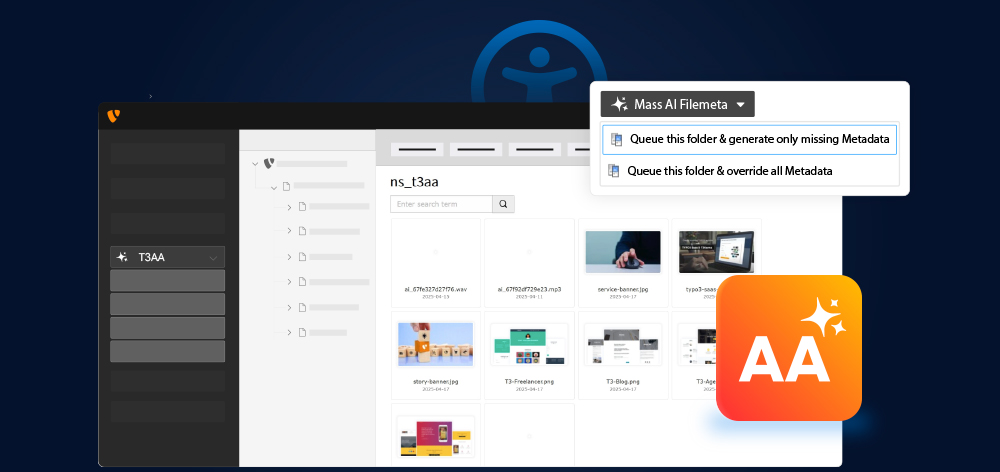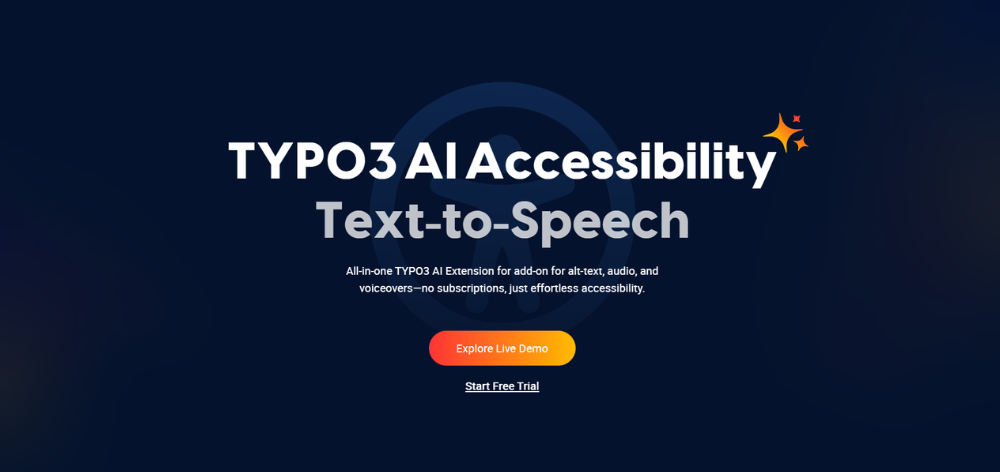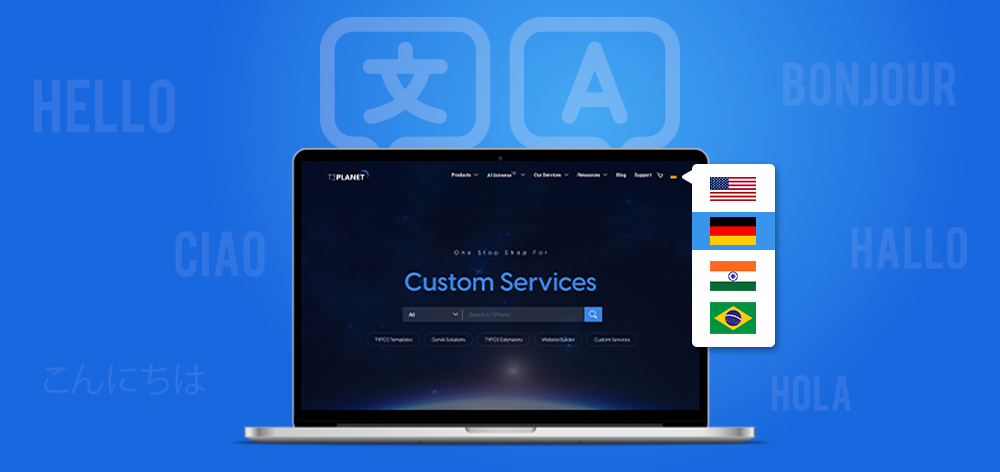Did you know that only 4% of websites meet basic accessibility standards? This means that the vast majority of online content remains inaccessible to many users, particularly those with disabilities.
“Can we finish the alt‑text today?” I’d just pushed 480 new product photos to the repository when our editor groaned that familiar question. We all know the drill: copy the file name, paste it into a text field, change a word or two, repeat until your coffee’s cold.
At T3Planet, we've always believed in building digital experiences that are open to all. That's why we developed T3AA, an TYPO3 AI extension designed to simplify the process of making your website accessible.
The Struggles We All Know Too Well
- Endless repetition: You add images, write alt‑text, then remember the German site still needs it in DE.
- Multiple tools: One service for alt‑text, another for text‑to‑speech, a third for voiceovers—plus three invoices.
- GDPR headaches: SaaS widgets store your media who‑knows‑where; compliance teams lose sleep.
If you recognise any of those, keep reading.
Where AI Meets TYPO3—Without the Cloud Tax
AI in TYPO3 Accessibility leverages artificial intelligence to automate and enhance the process of making websites accessible. This includes generating descriptive alt text for images, checking for color contrast issues, and suggesting improvements to meet accessibility standards like BITV, BFS.
T3AA (TYPO3 AI Accessibility) isn’t here to promise automatic WCAG certification. Instead, it puts three concrete helpers inside your backend:
| Feature | How Works |
| Alt‑Text Generator | Writes descriptive, keyword‑friendly alt‑text in any language you feed it. |
| Text‑to‑Speech | Converts articles into audio so visitors can listen while commuting |
| Voiceover | Produces studio‑quality MP3s you can drop into YouTube, podcasts, or LMS courses. |
No external dashboards, no iframe widgets—just TYPO3 APIs you’re already extending every day.
How T3AA Makes TYPO3 Accessibility Tasks Easy
- Morning: Integrator uploads a new batch of campaign images.
- Click: Select folder → “Generate Alt‑Text” → Go refill your coffee.
- Lunch: Marketing drafts tomorrow’s article and clicks “Add Audio Version”.
- Afternoon: Editor reviews autogenerated text, tweaks two sentences, publishes in EN + DE.
- End of day: Project owner exports the voiceover MP3 to LinkedIn without booking a recording studio.
Why Use T3AA - TYPO3 AI Accessibility Extension?
- Saves time on manual accessibility work
- Improves SEO and multilingual support
- Fits easily into your TYPO3 workflow
- Helps you meet WCAG and BFSG standards
- Makes your site more inclusive and future-ready
What Makes T3AA Different From Other Tools?
A closer look shows that 81% have low-contrast text, 54.5% are missing alt-text, and 48.6% don’t label form fields properly.
These numbers highlight a big problem—and a bigger opportunity. While T3AA may not fix every issue instantly, it removes the most time-consuming and repetitive tasks that teams often skip when they're on tight deadlines.
- Navigate to your TYPO3 backend.
- Go to Admin Tools > Settings.
- Click on Configure Extensions.
- Select T3AA (ns_t3aa) from the list.
Add Required API Keys
After installing T3AA, the next step is to connect your AI services. Just enter your API keys for tools like OpenAI, ElevenLabs, and alttext.ai.
Generate and Publish
Once your setup is complete, select the images or content you want to enhance. Click the T3AA button to let AI do the work. Review the results, make any quick edits, and publish your accessible TYPO3 content with confidence.
That’s it—you’re helping more users, satisfying auditors, and sparing colleagues from carpal‑tunnel copy‑paste.
Ready to Give Your TYPO3 Content a Voice?
Looking for an AI solution to automate your accessibility tasks? Then T3AA is the perfect fit. Click the button below to start your 15-day free trial and experience how easy accessibility can be with TYPO3.
Conclusion
Web accessibility is no longer optional—it’s a must. But that doesn’t mean it has to be hard or time-consuming. With T3AA, you can simplify the most repetitive tasks like writing alt text, checking contrast, and managing multilingual accessibility—all inside your TYPO3 backend.
Drop questions or your need in the comments below—let’s push TYPO3 accessibility forward, together!






Jürgen Pietschmann
TYPO3 AI ConsultantJürgen is a TYPO3 AI Consultant at AI Universe. He helps businesses make the most of their TYPO3 websites by integrating AI-powered solutions. From smart content creation and automated SEO improvements to seamless chatbot…
More From Author